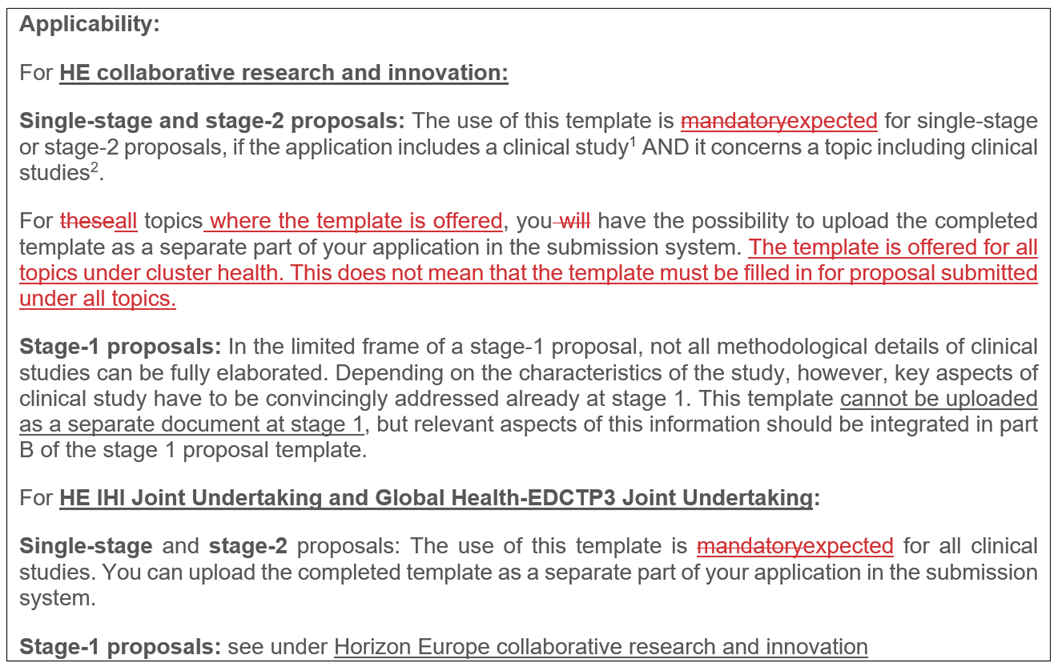Strengthening your trial design to address HORIZON-HLTH-2025-01-DISEASE-01 requirements
12th June 2025 at 8:58 pm
With rising antimicrobial resistance (AMR), bacteriophages (phages) represent a promising alternative or complement to antibiotics for treating infections that do not respond to conventional treatment options. The European Commission is supporting the revival of phage therapies for bacterial infections that are resistant to antibiotics through dedicated funding for their clinical validation. The 2025 call HORIZON-HLTH-2025-01-DISEASE-01 expects applicants to deliver not just innovation, but a robust, regulator-ready multicentre and multinational randomised controlled clinical trial (RCT). Drawing lessons from previous efforts like PhagoBurn, the first European clinical study on phage therapy to treat skin infections in burn patients, this blog outlines five key aspects of the trial design to consider in your proposal under Horizon Europe Cluster 1 Health.
1. Strong patient selection strategies
One of the major flaws of past trials was the lack of precise inclusion and stratification criteria. PhagoBurn, for example, faced delays and inconclusive results partly due to poor matching between phage preparations and patient needs.
Pro tip: Design your RCT with clearly defined diagnostic protocols such as phagograms. Use patient profiling to ensure only those likely to benefit from the therapy are enrolled, especially when testing personalised phage cocktails.
2. Adequate production and stability protocols
Phage therapy trials often suffer from inconsistencies in phage quality and batch variability. This can derail your data reliability and regulatory trajectory.
Avoid this by:
- Ensuring proper purification, characterisation, and storage of phage preparations
- Including data on sequence, host range, registration status, and batch-to-batch consistency
- Detailing protocols for regularly updated personalised phage mixes if applicable
Pro tip: Regulators will expect your proposal to include an exploitation pathway in order to accelerate marketing authorisation and uptake by the health systems. Make sure to involve experienced production partners from the outset.
3. Learning lessons from failed trials
The work programme explicitly mentions PhagoBurn and urges applicants to incorporate lessons learned. Failure to do so could be seen as a sign of weak awareness.
What to address:
- Patient recruitment logistics and delays
- Quality control of therapeutic preparations
- Alignment with clinical endpoints and regulatory expectations
Pro tip: Refer directly to past trials’ shortcomings and explain how your design improves them.
4. Following the dual model approach
This call covers both personalised phage therapy and ready-to-use phage cocktails, a flexibility that many proposals overlook.
To stand out:
- Justify your choice between the two
- Consider innovative study designs
- Explore how computational modelling or AI tools can speed/optimise trial design, implementation and/or the analysis of large data
Pro tip: If your trial explores both models, clearly explain how each approach contributes to broader clinical applicability and how your data will inform future regulatory pathways for personalised and standardised phage therapies.
5. Ensuring the involvement of stakeholders
Horizon Europe calls go beyond clinical science and demand meaningful societal engagement and the participation of relevant stakeholders throughout the trial lifecycle.
In your proposal, you should:
- Plan for sex and gender considerations where relevant
- Involve patients and civil society throughout the trial
- Include SSH experts to strengthen ethics and public trust
- Address behavioural and societal factors for real-world uptake
Pro tip: Don’t treat stakeholder involvement as an add-on — integrate SSH and patient voices from the proposal stage to enhance credibility, compliance and long-term adoption of your phage therapy.
Remember the Clinical Study Document
1. The applicability of the template has been updated as seen in the image below:

2. A footnote on the Ethics self-assessment now reads: “Ethics self-assessment should be included in proposal part A. However, in calls where several serious ethics issues are expected, the character limited in this section of proposal part A may not be sufficient for participants to give all necessary information. In those cases, and where the submission system foresees this option, participants may include additional information in an annex to proposal part B.”
The Health-NCP-Net 3.0 (HNN 3.0), an EU-funded consortium aiming to align and enhance the services of National Contact Points (NCPs) for the Health cluster, has just published an updated version of the annotated template.
For more information or general advice on the call topic, please consult your National Contact Point.
Looking for proposal writing support?
Since our foundation, we have been collaborating with more than 1,000 organisations in Europe and beyond, including in our ongoing BREAKthrough Doctoral Network project on anti-microbial resistance. Our successful Research and Innovation Actions (RIAs and IAs) in Health include the recently started Horizon Europe Cluster 1 project EXPOSIM and several other HORIZON projects, such as EDiHTA, EU PAL-COPD, GLIOMATCH, COVend, GENEGUT and MyPath. We are also actively involved in Horizon 2020 Health projects still running, namely AI-Mind, EXIMIOUS, and VANGUARD. Additionally, our support extends to many more health-focused Innovative Training and Doctoral Networks, including MITGEST and MobiliTraIN, as well as Pathfinder-Open projects related to health, such as POLINA and BoneOscopy.
Our experienced team partners with researchers, companies and institutions at every stage of the EU funding journey, from identifying strategic opportunities to crafting competitive proposals and managing successful projects. Whether you are preparing for a Pillar II Health call or refining your communication and dissemination strategy, we are here to help you strengthen your proposal and boost your chances of securing Horizon Europe funding. Get in touch to explore how we can best support your goals.


